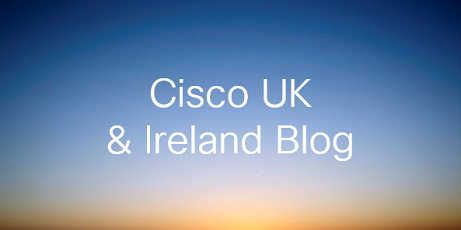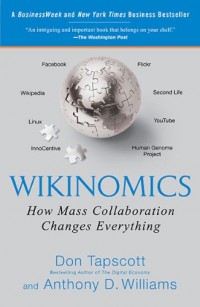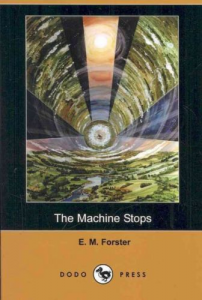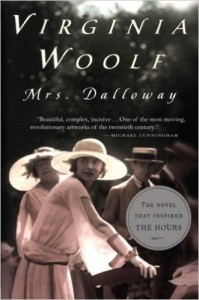
Cisco: Books that changed our lives
To celebrate World Book Day (March 3rd) we caught up with three Cisco executives to discover the pieces of literature that have influenced them through their lifetimes. Here are the results…
Phil Smith
CEO Cisco UK and Ireland
 Wikinomics: How Mass Collaboration Changes Everything, by Don Tapscott and Anthony D. Williams (2006)
Wikinomics: How Mass Collaboration Changes Everything, by Don Tapscott and Anthony D. Williams (2006)
The books explores the early adopters of mass collaboration and open source technology, leading to transformative effects.
How did you hear about the book?
I saw Don Tapscott speaking at an event and was inspired to read his book as a result. At the time (ten years ago) it was a game changer – it captured the essence of the world starting to wake up to the power and potential of sharing. This is very much the norm for us now, so it’s more than fair to say they were ahead of the curve on this one.
What were your main takeaways?
It’s the idea that you could somehow create such a fundamental difference to the world, by democratising things. An example from history they explain is the idea of the printing press (essentially, knowledge). Before this was invented, information was controlled by a small number of people – the church, and royalty for example. It meant normal people out in the street had limited access to knowledge and information, relying on hand-written scripts and word of mouth. The invention of the printing press allowed more people access to information, helping them to learn to read, and therefore more people became more powerful. In the modern day, the internet means that everyone has access and can contribute to information in a very different way.
Why would you recommend it?
It underlines why sharing information has such great power to create change. For many organisations looking to digitise and develop new business models, the book shows you have to give information and data away to create value. Open data is a key trend right now – and you could argue fantastic apps such as Citymapper might not even exist if it wasn’t for this book.
//
Ian Kennedy
VP Cisco EMEAR
 The Machine Stops, by E M Forster (1909)
The Machine Stops, by E M Forster (1909)
The Machine Stops is a dystopian story which foretells many of the technology developments we experience today as well as the dangers of society becoming overly dependent on technology. The book is free to read online.
How did you hear about the book?
It was part of the recommended reading list for an Open University course, “Telecommunications Systems” which ran in the early 1980’s and the messages it delivers have stayed with me over the years since. Forster describes a world with a global internet providing video communication, automated health systems, streaming content and many other innovations. His descriptions of how individuals would engage with their technologically rich surroundings are vivid and totally believable, and I go back to the book at least two or three times a year.
What were your main takeaways?
Forster is extrapolating what a future might hold for mankind when technology is deployed without consideration for the impact on the way society functions. He describes a highly automated machine-to-machine world where every service is automated and humans are completely disintermediated – machines are self-maintaining but as the story unfolds its clear just how essential it is for humans to retain overall control and a deep understanding of interconnected systems.
Why would you recommend it?
It’s astonishing that the book was written so long ago and that so many of his predictions are now a reality. The story reminds us that while the virtual world is a great way to exchange and share information it can never replace the fact that we thrive as a species on collaborating and interacting in the physical world. It’s a stark reminder of what can happen if we lose the fundamental understanding of how technologies work and what the technologies are meant to deliver.
//
Hema Marshall
Head of Country Digitisation and Skills, Cisco UKI
 Mrs Dalloway, by Virginia Woolf (1925)
Mrs Dalloway, by Virginia Woolf (1925)
The story details a day in the life of Clarissa Dalloway, a fictional high-society woman in post–First World War England, and her struggle to understand her own identity.
How did you hear about the book?
I first read this when I was 17, after it was recommended by my English teacher. It’s set in 1923 but the ideas and themes can apply to anything and anyone in the world at any time. My teacher’s parting words were there is no defining self-identity. I love this book because it explores just that.
What were your main takeaways?
It helped me realise that you become different things at different stages in your life. I’m very different now to how I was at that age – I’m now a mum, and I work in a really great job. The book helped me achieve the realisation that change is constant, and that life throws so many experiences at you. Your identity evolves and grows, that’s what I always take away.
Why would you recommend it?
I’d definitely recommend this to lots of people. The book isn’t about Clarissa Dallaway – it can be about you, about anyone. That’s why it’s a firm favourite for me, because of understanding that identity and the process of reflection it takes you through.
All the characters are a part of her – but when you start reading the book it feels like reading about yourself. You get very immersed in storytelling and the setting. It feels like you’re looking in the mirror allowing you to process and reflect whatever you’re going through at the moment in time.
It’s a way of viewing yourself from third person. It’s that real deep sense of looking at yourself in all the different facets of those characters which I really enjoyed.
What’s your favourite book and why? Leave a comment below or tweet us at @CiscoUKI.
Tags:1 Comments




I now have 3 books to load onto my Kindle. Thanks for the recommendations.